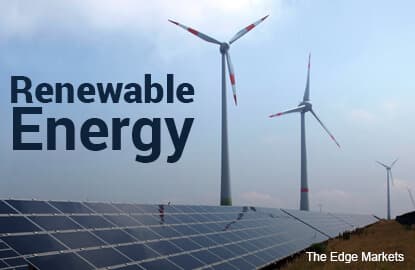
KUALA LUMPUR (Sept 8): The Malaysian government is looking abroad for the opportunity to purchase renewable energy to achieve fuel-mix target of 23% renewable energy (RE) use by 2025.
"Apart from local renewable energy supply, we should also look beyond our borders, both for affordable and continuous supply," said Ministry of Energy, Green Technology and Water secretary general Datuk Seri Zaini Ujang.
"In this respect, Malaysia is looking to procuring hydropower from Laos as part of the initiative of Asean regional power grid," he added.
He said the government is now working closely with other Asean member states to ensure first energy will be flown in to the country's system by 2018.
He said this while delivering his speech at the 7th National Energy Forum here today, organised by Energy Commission of Malaysia.
The regional power grid was mooted by the member states in 1997, after the second Asean Informal Summit in Kuala Lumpur, as Asean recognises the critical role of an efficient, reliable and resilient electricity infrastructure in stimulating regional economic growth and development.
To meet the growing electricity demand, huge investments in power generation capacity will be required, according to Asean.
Currently, Zaini said Malaysia's share of RE in the generation mix is only 9.7%.
"We need a bigger shift to at least increase our share of RE to the level targeted by Asean, which is 23% in 2025," he added.
He said the government has treated energy efficiency as an energy resource.
"Recognising that EE is seen as the 'low hanging fruit' in addressing sustainable energy, the government has identified promoting EE as one of our top priorities for the coming years to come," he said.
According to him, the government is currently reorienting its policies to promote EE strategies, in line with the United Nation Foundation, which calling on the governments, should exploit EE as energy resource of first choice, as it is the least expensive and most readily scalable energy option.
He also mentioned the importance of ensuring efficiency and transparency in energy pricing.
"In any effort to build a sustainable energy future, the most fundamental consideration must be that of energy pricing.
"The mispricing of energy, in which end-user energy costs do not reflect the cost realities of supplying that energy, can send wrong signals to both consumers and suppliers," he added.
Though the country has achieved high economic growth amidst huge subsidies to ensure reasonable and affordable energy prices in the past, Zaini said the approach is no longer sustainable.
"A timely response is needed. As we have seen from the experiences of a number of countries, the longer we allow subsidies to persist on energy sector, the harder they become to be removed and ultimately, it could undermine not only economic security, but even social stability."
Hence, he said the government has announced a comprehensive subsidy rationalisation programme, aimed at correcting the price distortion and gradually bringing the price levels to market pricing, in line with affordability of the people.